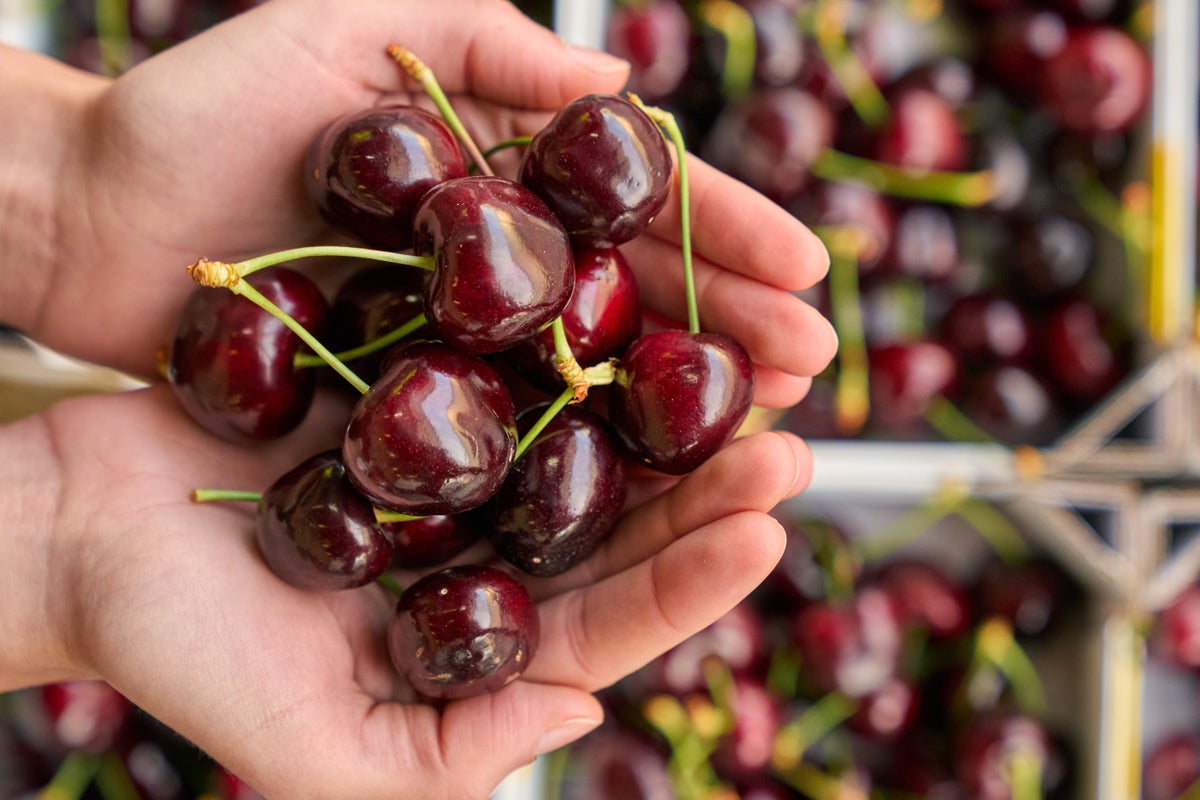Your support helps us to tell the story
From reproductive rights to climate change to Big Tech, The Independent is on the ground when the story is developing. Whether it’s investigating the financials of Elon Musk’s pro-Trump PAC or producing our latest documentary, ‘The A Word’, which shines a light on the American women fighting for reproductive rights, we know how important it is to parse out the facts from the messaging.
At such a critical moment in US history, we need reporters on the ground. Your donation allows us to keep sending journalists to speak to both sides of the story.
The Independent is trusted by Americans across the entire political spectrum. And unlike many other quality news outlets, we choose not to lock Americans out of our reporting and analysis with paywalls. We believe quality journalism should be available to everyone, paid for by those who can afford it.
Your support makes all the difference.Read more
Eating cherries turned into a powder rather than a juice could help prevent Alzheimer’s disease, while also tackling food waste, according to new research.
The red stone fruits are known for being naturally rich in anthocyanins and quercetin – pigments known for their antioxidant and anti-inflammatory properties. Some studies have previously suggested anthocyanins can help combat dementia.
And now a new study from researchers at the University of Kent, published in Antioxidants, has said the most effective way to use cherries to boost anthocyanins is not to juice them, but instead to turn them into a powder.
Using cherries that otherwise would have been discarded, researchers analysed cherry juice, pulp and pomace’s retention of anthocyanin. They found “greater biological activity” in developing the powder, which they suggested may bring more health benefits than extracts or supplements.

open image in gallery
Scientists took cherries that otherwise would have been thrown out (Place UK/ PA)
Dr Marina Ezcurra, the project’s lead researcher based in Kent’s School of Natural Sciences, said: ‘Working with local growers has been key to this success. Together we are showing that agricultural by-products don’t need to go to waste – they can become part of the solution to producing sustainable and accessible healthy foods.
‘Our newly discovered innovation is a scientific approach that could be adopted at scale in Kent and other agricultural regions, and we look forward to carrying out further research to help drive this forward.’
Dr Sarah Blackburn, first author of the study, said the research showed how food waste could be turned into health supplements: “What makes this work exciting is that we combined detailed analytical approaches with health measurements in inexpensive laboratory models that provide insights into human health,” she said.
“This allows us to demonstrate the potential of food waste to provide benefits for both people and the environment.”
Around one million people are living with dementia in the UK – a number that is expected to rise significantly to around 1.4 million by 2040.
Previous studies have shown that people who consume more foods rich in flavonoids, such as berries, tea, red wine and dark chocolate, could lower their risk of dementia.
A 2024 paper from teams at Queen’s University Belfast found increasing your intake of flavonoid-rich foods and drinks could help reduce the risk of developing the incurable illness by 28 per cent. Flavonoids are understood to have antioxidant, anti-inflammatory and anti-cancer properties that can boost your chances against dementia.
